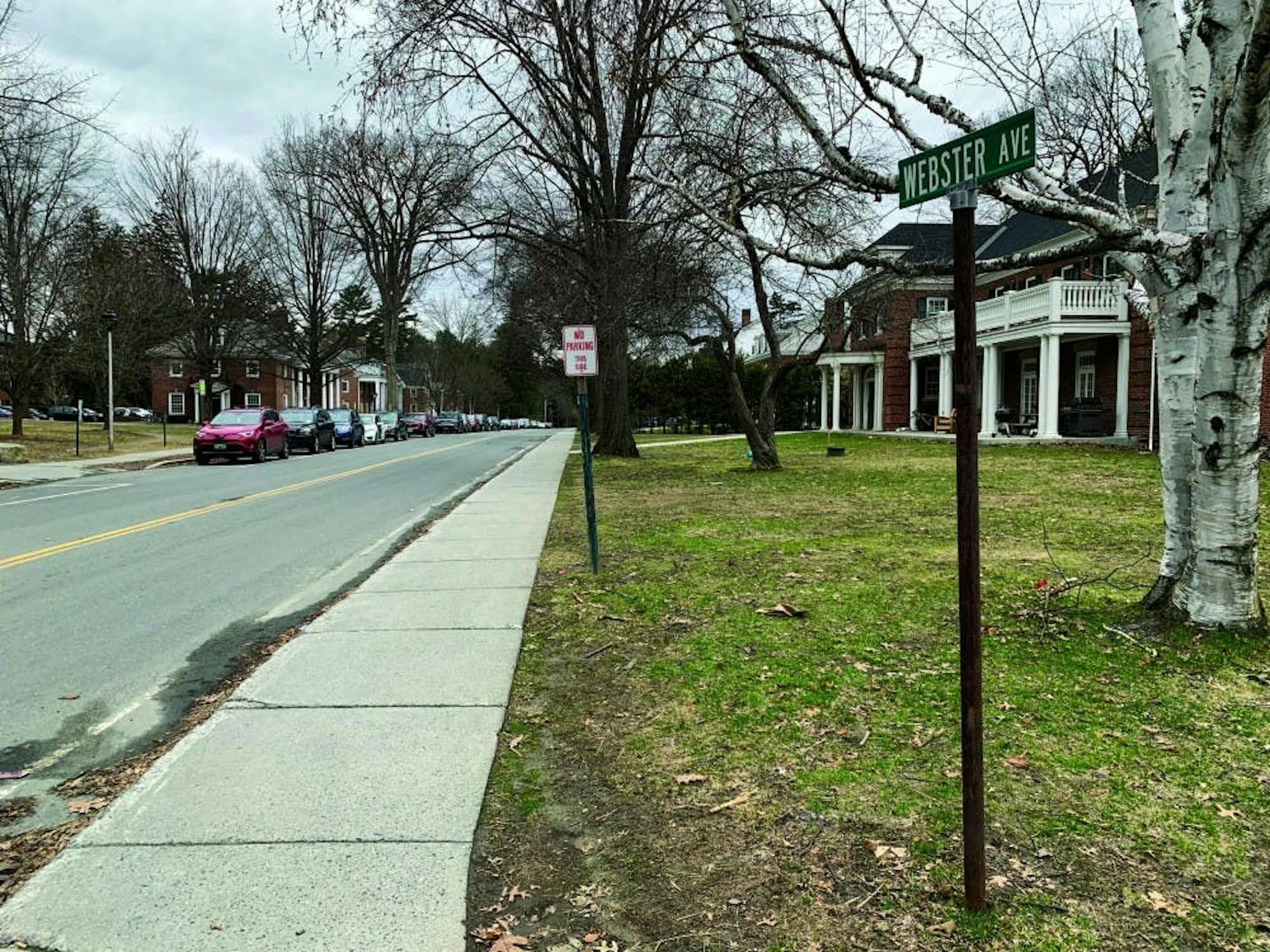The Greek Leadership Council will no longer allocate funds for Greek organizations to host student performance groups, according to GLC president James Park ’20. The now-terminated funding policy used to provide $150 to Greek houses to host student performance groups, Park said.
The change in funding policy follows a shift in financial responsibility that has increased the GLC’s funding burden, according to Park. He noted that a contributing factor in this budget change has been the GLC’s absorption of existing events, such as Alpha Kappa Alpha’s Yard Show and Alpha Phi Alpha’s Step Show, from other funding bodies. Some of those events, such as Gamma Delta Chi’s Green Key concert, have traditionally been funded by the Special Programs and Events Committee.
The financial responsibility for Greek-sponsored events shifted to the GLC following conversations over the past few years, according to SPEC chair Samantha Koreman ’20. Recently SPEC has seen an increase in proposals to fund heritage months and events that celebrate or affirm different identities, Koreman said. She also noted the importance of SPEC’s funding for these events.
“If SPEC doesn’t fund these events, they won’t happen,” Koreman said when comparing SPEC-funded events to Greek-sponsored events. “There is no membership that they can draw from to offset funds.”
Consequently, there have been discussions over the past few years about the GLC receiving more funding to accommodate larger-scale Greek events, Koreman said.
Additionally, for the FY 2019-20, the Undergraduate Finance Committee allocated $61,000 — an increase of over $10,000 from the past fiscal year — to the GLC, according to a UFC press release. However, these budgetary shifts were not sudden, according to Koreman.
“This is not new,” she said. “This is something that we’ve all been working on for a really long time in order to accommodate the needs of Dartmouth students.”
Following a internal review of the GLC budget, the council decided to end performance group funding due to the GLC’s new responsibility to cover large-scale Greek events, Park said.
“This wasn’t something that was pushed onto us without us wanting it,” Park said. “It made sense that if Greek organizations are asking for funding, the GLC is responsible.”
In response to this change, the presidents of several Dartmouth performance groups — including the Aires, Brovertones, Casual Thursday, Cords, Decibelles, Dodecaphonics, Dog Day Players, Fusion, Rockapellas, Sheba, Sings, Street Soul, Subtleties, Sugarplum and Ujima — sent a letter to Park and Office of Greek Life director Brian Joyce asking the GLC to reconsider its decision.
“We believe a complete funding cut will run counter to the goal of inclusivity,” the letter stated, which also noted that performing exclusively in non-Greek spaces would not be viable. “Performance groups foster inclusive environments in otherwise exclusive Greek spaces.”
The letter also asserts that Greek houses are the “only realistic sources of revenue for all campus performance groups.” According to the letter, the funding policy change may reduce the groups’ incomes almost entirely.
“We’re in a unique position where we don’t have what we’ve been relying on and supported by,” said Decibelles president Allie Banks ’20. “We have to pivot and make some big changes to stay afloat.”
Banks also said that the initial decision led to confusion because the “performance groups didn’t know that this was happening.”
After receiving the letter from the performance group presidents, the GLC invited the performance group presidents to a meeting, Park said. Cords president and vice president and treasurer of the Interfraternity Council James Flood ’20 said that the meeting was a “very productive conversation” to help understand the GLC’s reasoning behind the decision. Banks echoed this sentiment.
“We came to an understanding of what their budgetary constraints were and why this policy was enforced,” Banks said.
Flood noted that the GLC is concerned that “certain houses carry an undue burden” for hosting shows. According to Park, of the 26 Greek-letter organizations recognized by the GLC, one house was receiving approximately 30 percent of the performance group funding.
“We also know that this isn’t a house that’s not financially well off,” Park said.
However, Flood and the other performance group presidents said they are still concerned about the limited avenues for funding. According to Flood, many performance groups rely on “consistent, small payments throughout the term.”
Consequently, Banks explained that the change in the GLC funding policy has prompted discussion about the role of performance groups at Dartmouth.
“A lot of the work that we do for the College is uncompensated,” Banks said. “Dartmouth relies on these groups to promote inclusivity. We can’t really do that without funding.”
The performance group presidents are exploring other sources of funding, Flood said. According to Banks, the performance groups may turn to the College to create a budget or provide compensation for performances.
The performance group presidents are also trying to form a “performance group council” to advocate for all the groups, Banks said. She added that with performance groups charging different rates for performances, creating a council could form a more “cohesive culture.”


